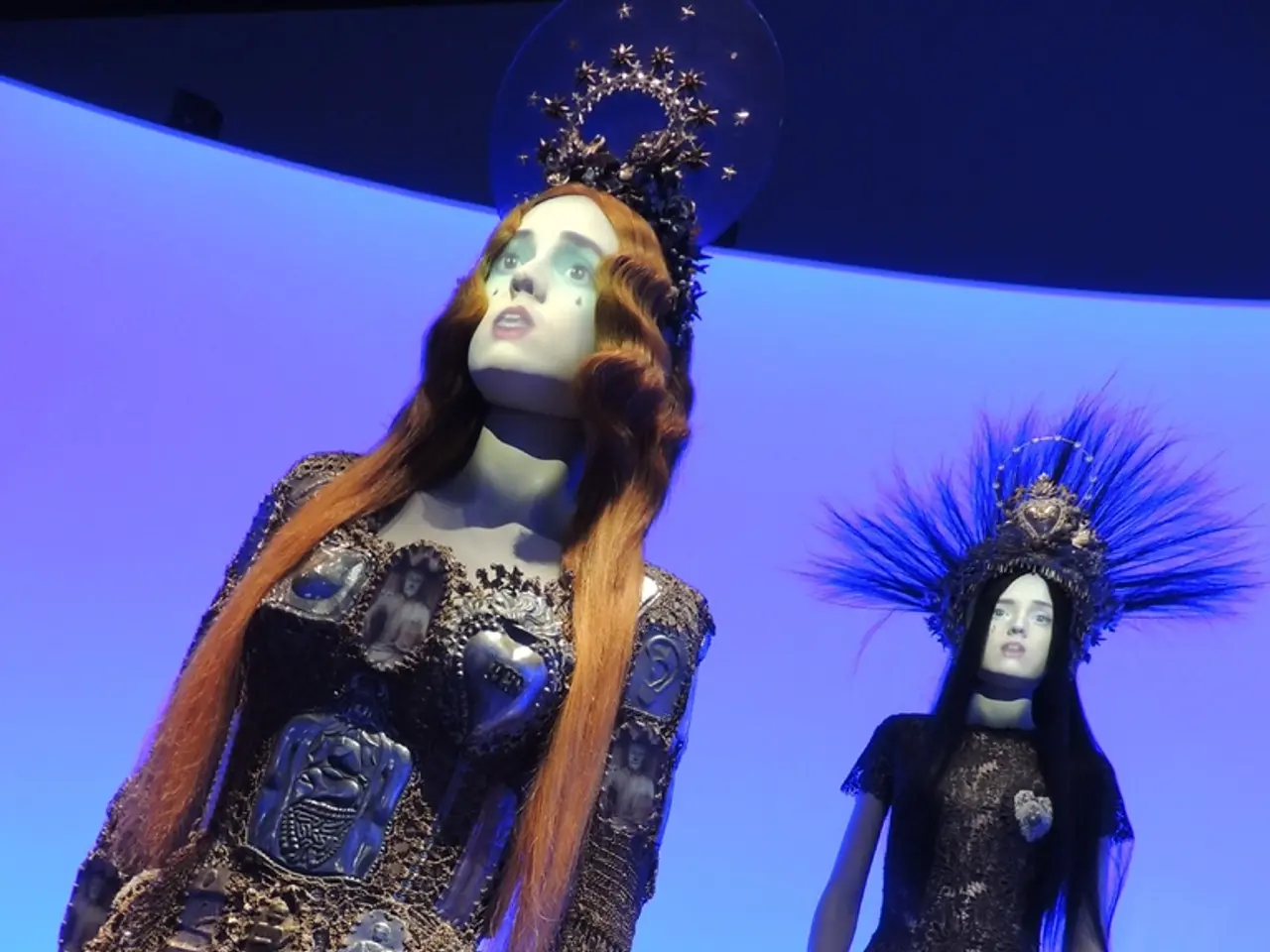The Evolution of Style: A Look Ahead at Tomorrow's Trends
The fashion industry is on the cusp of a transformative era, with technology, sustainability, and inclusivity at its forefront.
A Greener, More Inclusive Future
The future of fashion is expected to be more sustainable, inclusive, and technologically advanced. This shift towards a greener and more diverse fashion landscape is being driven by a growing trend towards circular fashion, where products are designed to be reused or recycled at the end of their lifecycle.
Innovative plant-based and recycled materials, such as Tencel™, hemp, organic cotton, and mushroom leather, are becoming more prevalent. These eco-friendly materials not only lower the environmental impact but also maintain style.
Fashion is also expected to become more inclusive by embracing diversity in terms of body size, ethnicity, gender, and age.
Smart Clothing and Fabrics
Technological advancements are reshaping sustainability in the fashion industry. Smart clothing and smart fabrics, which integrate electronic sensors into textiles, are becoming increasingly popular. These high-tech textiles monitor health parameters such as heart rate and temperature, while offering features like color-changing fabrics and touch sensitivity.
Smart clothing utilizes recycled or biodegradable materials and consumes less energy during production. Innovations foresee garments with climate control and programmable lights, often linked with mobile apps for real-time user interaction. However, challenges remain in ensuring durability, washability, comfort, and cost efficiency.
Transparency and Traceability
Blockchain and RFID technologies are being used to enhance transparency and traceability in supply chains, addressing consumer demand for authentic and verified sustainability data.
The Role of Social Media
Social media has democratized fashion, giving individuals a platform to express their personal style and influence trends on a global scale. It has also transformed the way fashion is marketed and sold, with brands leveraging influencer partnerships and shoppable posts to reach consumers directly through digital platforms.
Social media has enabled direct communication between brands and consumers, allowing for more authentic and engaging interactions. Platforms like Instagram, TikTok, and Pinterest have become key drivers of trends, with influencers and content creators shaping consumer preferences.
The Impact of AI
Artificial intelligence is expected to play a significant role in the future of fashion, particularly in areas such as trend forecasting, personalized shopping experiences, and supply chain optimization.
Emphasis on Transparency and Accountability
There has been a greater emphasis on transparency and accountability within the fashion industry. Many brands have committed to reducing carbon emissions, implementing circular economy principles, and investing in sustainable materials and production methods.
In summary, sustainable fashion in 2025 combines innovative plant-based and recycled materials, circular business models, and high-tech smart textiles to create garments that are eco-conscious, functional, and durable, reflecting a significant lifestyle shift away from fast fashion. This transformation is being driven by a combination of consumer demand, technological advancements, and a newfound commitment to sustainability and inclusivity within the fashion industry.
[1] Source: Sustainable Fashion Report 2020 [2] Source: The Future of Smart Clothing [3] Source: Blockchain in Fashion: A New Era of Transparency [4] Source: The Impact of AI on Fashion [5] Source: The Rise of Circular Fashion
- The growing trend of sustainable fashion includes the embrace of innovative plant-based and recycled materials, such as Tencel™, hemp, organic cotton, and mushroom leather, in the fashion-and-beauty industry as people prioritize lifestyle choices that are eco-friendly and stylish.
- The future of fashion education-and-self-development is focusing on fostering technological advancements, like AI, blockchain, and RFID, to enhance transparency, accountability, and traceability within the industry.




